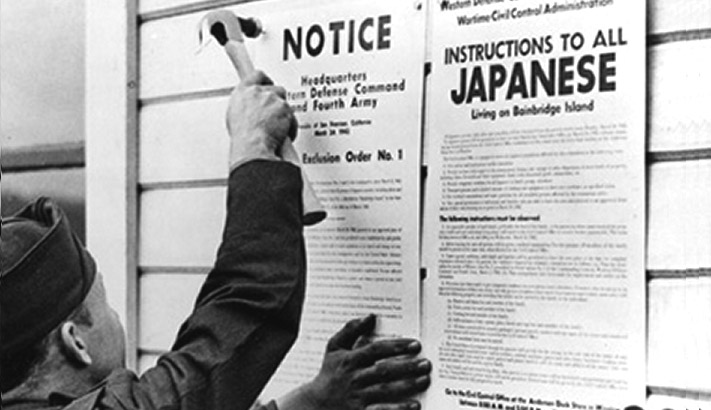Talk of a blanket ban on the immigration of Muslims to the U.S. and the possible creation of a Muslim registry has many revisiting the injustices set upon JAs 75 years ago.
By George T. Johnston, Contributor
(Originally published in the Dec. 16, 2016-Jan. 26, 2017 Holiday Issue of Pacific Citizen.)
On Jan. 20, 2017, Donald J. Trump is set to become the 45th president of the United States.
On Feb. 19, 2017, it will be the 75th anniversary of President Franklin D. Roosevelt’s signing of Executive Order 9066.
A season to remember, indeed.
Could these two significant dates at some point in the not-so-distant future intersect for a 21st-century iteration of E.O. 9066 that would place a curfew on, then incarcerate, Arab Americans or those in the U.S. of the Muslim faith?
For some — civil libertarians, legal historians and everyday people alike — it’s a valid concern. Ditto, of course, for many of those Japanese Americans on the mainland who were affected by E.O. 9066.
After all, as a candidate for president, Trump called for a blanket ban on the immigration of Muslims to the U.S.
More recently, Carl Higbee, the former spokesman for the pro-Trump Great America political action committee, praised the concept of a Muslim registry, citing the actions taken against Japanese Americans during World War II as a precedent.
Could the new political climate set the stage for such a future action? Or, will the Japanese American experience serve as a defense against a rash reaction taking place? Has the U.S. learned this lesson from history, which the federal government apologized for under President Ronald Reagan and the passage of the Civil Liberties Act of 1988?
The Pacific Citizen asked questions along those lines to some people who directly experienced the effects of Executive Order 9066, had family who did or, had they been around in 1942, would have been evacuated and relocated against their will due to what a congressional commission concluded was the result of race prejudice, wartime hysteria and a failure of political leadership.
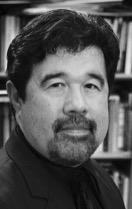 Lane Hirabayashi
Lane Hirabayashi
Professor, UCLA Department of Asian American Studies, and George & Sakaye Aratani Chair in Japanese American Incarceration, Redress and Community
“I think that we are in a perilous time again, as far as the wars we’re involved in and the national security issues that those kinds of conflicts seem to bring to the fore. And so, along with a lot of people, I was pretty horrified to see some of the Trump advisers talking about a Muslim registry, for example.
“I think it’s really important to remind people that there was a registry — I won’t say kind of along those lines because I don’t think it was exactly clear what Trump and his advisers had in mind — but I hope people remember that under President Bush, they did try to keep track of Muslims and particularly Arabs that were coming into the U.S.A. (Editor’s Note: The Department of Homeland Security in 2002 implemented the National Security Entry-Exit Registration System, which required port-of-entry registration and domestic registration that included collecting fingerprints and photographs of noncitizens from Iran, Iraq, Libya, Sudan and Syria. The program was suspended in 2011.)
“When the program was canceled, there had not been one person deported in terms of someone being a threat to the national security of the United States. This just really reminded me of the kind of registration program put upon Japanese Americans after Pearl Harbor.
“I think the Issei, earlier than that, were subject to various registrations. So, I think the winds of war and the policy options that are kind of being floated are of deep concern to me.
“I think that, unfortunately, the history of Japanese Americans during the prewar period, and then especially during the 1940s, have become relevant again. I think that in order to make reasoned public-policy decisions, we ought to reflect upon the history of what has been done. That’s why I think the 75th anniversary is really a critical time.
“We need some public discussion. We need some reflection on the historical precedents. I think there has been so much criticism of what happened to Japanese Americans in terms of mass removal and then incarceration and the kind of penal system that they developed among the WRA, the DOJ and so forth.
“I think that maybe a more likely scenario might be that of a curfew. I think that it’s important to reflect back on the 75th anniversary and remember that the whole process of mass incarceration for Japanese Americans did start with a racially oriented set of curfews on the West Coast, supposedly for the protection of the airports, naval installations and military bases facing the Pacific waters.
“In terms of the 1943 Supreme Court decisions, those stand, and they stand as a precedent. I think that one of my concerns is that, God forbid anything should happen in the way of domestic attacks, domestic sabotage or espionage, I’m really wondering if a curfew would be a next kind of policy alternative.”
The Pacific Citizen: Historically, with a few exceptions, not even the American Civil Liberties Union did much in the way of standing for the Japanese Americans — probably part of the war hysteria that was referenced by the Commission on Wartime Relocation and Internment of Civilians conclusions — but would the precedent of what happened and with the apology that came as a result of the redress in 1988, would that trump the forces that would try to do those very things or would that all be swept aside with a new wave of hysteria, especially if there was a new sort of attack?
“I’m very concerned that, in the heat of the moment, if people felt that their safety personally and the safety of the country was at issue, I think that it’s easy to forget these historical precedents, and I’m concerned even with seeing Trump’s advisers pull up the notion of a new attempt to register Middle Easterners and Muslims; that’s an exact kind of example of immediate threats overshadowing some reasoned reflection on what’s been the past history, and in the registry case, recent past history of a failed public policy along those lines.
“There was a well-known political scientist of my father’s generation who wrote about the idea of the Garrison State. He did some historical analysis and felt that democracy was a strong system, but one of its weaker points was in a crisis, folks forgot about the Bill of Rights, they forgot about constitutional protections and they were willing to give up some basic rights if it meant they felt more protected from an outside, maybe somewhat mysterious or foreign threat.
“So, this notion of the Garrison State (Editor’s Note: Harold Lasswell originated the concept, but it was Louis Smith who applied the concept to the erosion of democracy in his 1951 book “American Democracy and Military Power”) in a democracy, if people feel panic or feel that their safety personally or that of the country is jeopardized, they are willing to give up rights, even before there is a reasoned discussion of what the threat is and how it might be best to combat [it]. I thought that was an effective idea, both to understand what happened to Japanese Americans in the 1940s, but also in terms of a caution about what we might be careful of today.
“People have got to reflect on what was done and how it worked out. Maybe that can steer us away from policy decisions that are too extreme, really not effective cost-wise or security-wise. I don’t want to see the citizenry rush to support something they feel might protect them but is actually not doing what it purports to be doing.”
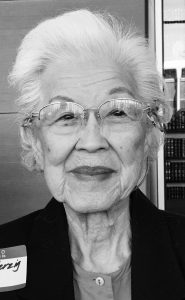 Aiko Herzig-Yoshinaga
Aiko Herzig-Yoshinaga
Activist, historian and researcher
“Well, we keep saying, ‘Never again,’ right? They said that about the Holocaust, and they said that about our incarceration and forced removal — but then how come the Patriot Act got passed? To me, that’s a big boo-boo on the part of the government again. They acknowledged it was a mistake to treat us in World War II the way they did, and yet there is a provision in the Patriot Act that says anybody under suspicion of disloyalty can be apprehended and be held for indefinite detention. That just doesn’t make sense to me.
“I think we have to let our young folks know this exists. That’s why it could happen, say, to the Muslims, for example. I just don’t understand how President (Barack) Obama could have signed the Patriot Act. I was really quite horrified about that.
“I’m very fearful about our volatile new president, and I have a feeling that he has advisers who feel that what happened to Japanese nationals and Japanese Americans in World War II was justified. I am so afraid his brilliant advisers might want to win Mr. Trump over, and it could happen again to some other minority groups.”
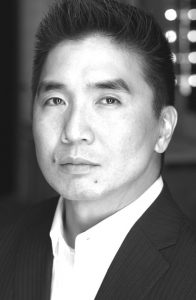 Greg Watanabe
Greg Watanabe
Actor (Mike Masaoka in the stage play “Allegiance” and Gordon Hirabayashi in the stage play “Hold These Truths”)
“It’s troubling, right? Just the fact that Donald Trump got elected, basically on a platform of open xenophobia and anti-immigrant sentiment. The amount of hate crimes that are popping up after his election are an indication of the impact of that kind of rhetoric that it has on people who are fearful and have had their fears stoked and then therefore are in a mode of scapegoating and blaming of others.
“I think that that’s an immediate negative impact and end result of Trump having been elected, even though he lost the popular vote by such a large margin, which only says to me that he doesn’t in fact reflect a majority opinion.”
The Pacific Citizen: Have we learned?
“I feel clearly that we have not, only in the sense that there are calls from politicians to approve Muslim registries or talk about registering people who are coming into the country for surveillance. Those kinds of things are the gateway into registries for American citizens who attend mosques or who are Muslim or Arab.
“I think that a mass incarceration is unlikely. The amount of fear and the war hysteria and the lack of political leadership, while all being in place — I feel that that’s one firewall I think people, by and large, would be horrified by, the setting up of concentration camps again.
“That being said, that’s what’s troubling about all the anti-immigrant, anti-Muslim rhetoric — we’re essentially in an active war situation in the Middle East, and there is a constant sense of terror. All the circumstances and all the kindling are in place, so if something catastrophic like 9/11 were to happen again, there’s no telling what could happen.
“That’s one thing about 9/11. It occurred at a time when we didn’t have this current atmosphere, and we didn’t have a lot of bigotry and xenophobia and active wars in the Middle East, so if something terrible were to happen, then who knows how quickly and how easily people could be swayed over into being OK with something terrible — could it be concentration camps again? — and I want to hope not, but I don’t underestimate the power of fear rhetoric. It’s certainly troubling.”
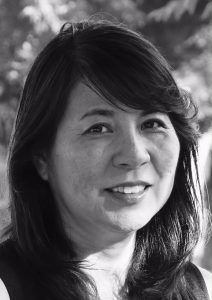 Iris Yamashita
Iris Yamashita
Academy Award-nominated screenwriter (2006’s “Letters From Iwo Jima”)
“I do believe there are striking parallels between how Japanese Americans were viewed in the 1940s and how Muslim Americans or people of Middle Eastern descent are viewed today. In the 1940s, E.O. 9066 gave rise to a hysteria of fear against Japanese Americans. Today, we’ve been led to believe that all acts of terrorism are committed by Muslim extremists, but the number of terrorist acts committed by Islamic extremists since 9/11 is far less than the number of terrorist acts committed by non-Muslims such as right-wing extremists.
“In his fear-fueled presidential campaign, Donald Trump proposed a Muslim registry and travel restrictions on citizens of Muslim countries, so I believe that some variation of Executive Order 9066 could be enacted under his presidency. I do worry that the proliferation of ‘fake news’ specifically designed to be incendiary to bait clicks and followers is similar to what was seen in the 1940s for the purpose of dehumanizing people of Japanese descent.
“Overall though, I am cautiously optimistic. I don’t think that today it would be possible to come to a point where Muslims in America would be interned, especially with today’s ACLU.
“So, while racism is clearly alive and well today, I have faith that most of the country is more evolved than it was in the 1940s.”
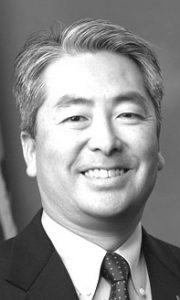 Al Muratsuchi
Al Muratsuchi
California assemblyman representing the 66th Assembly District of Los Angeles
“Racial prejudice, wartime hysteria and the failure of political leadership caused the unjust incarceration of Japanese Americans during World War II. As Japanese Americans, we have a unique responsibility to speak out and denounce any attempt to repeat such injustices against any other group. As the only Japanese American state legislator in California, I will fight to make sure that racism and fear-mongering during our country’s war against terrorism does not lead to a Muslim registry or any other attempt to unfairly target loyal Muslim Americans.”
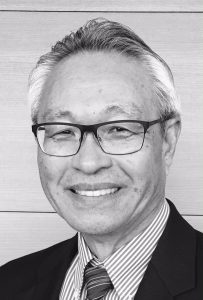 Ronald Ikejiri
Ronald Ikejiri
Attorney at law and JACL Washington representative, 1978-84
“E.O. 9066 is a constant reminder why we should get involved in politics. Where you live, how you live and if you live is based on politics, and certainly with E.O. 9066, it was evidence against the Japanese Americans during WWII that if we would have had stronger political power or someone communicating that the Constitution was going to be negatively impacted by this action by the Executive branch, this would not have occurred.
“Certainly with the new president coming in, there’s always is going to be a degree of concern and uncertainty; that makes it even more important that we become involved in politics. E.O. 9066 is a constant reminder that we need to be involved.”
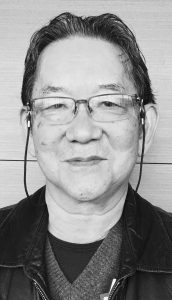 Neil Gotanda
Neil Gotanda
Professor, Western State College of Law
“I just recently gave a talk before the elections about revisiting [Fred] Korematsu and questions of race in the United States and all of the things, not just what Trump said, but Trump’s appointees, his proposed secretary of defense, attorney general — all of those statements with regard to Muslims and citizenship and deportation all make Executive Order 9066 and the Japanese concentration camps extremely relevant, just absolutely important today. It’s unfortunate, but the 75th anniversary forces us to re-examine all the things that happened.”
The Pacific Citizen: Will what happened to Japanese Americans in WWII make a difference if a 21st-century version of E.O. 9066 was to occur?
“Absolutely. It’s still very important. The manner in which Japanese Americans have been responsive to the suggestions about registering Muslims or mass deportations has been really important. That the Japanese can speak from their own personal and family histories is really important.”
The Pacific Citizen: So, that is a difference between then and now?
“I wish that there were more differences between then and now. But unfortunately, as I said, the title of my talk, ‘Korematsu Revisited,’ is, unfortunately, not history. It would be nice if it were history and settled history, but so many of these issues are still with us. I today wish it were more historical and not relevant today.”
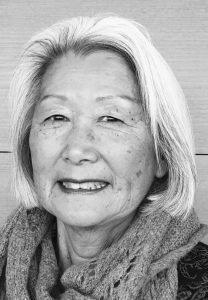 Hatsuko Mary Higuchi
Hatsuko Mary Higuchi
Painter
“I tried to show everything through my art. That’s why I do a lot of the Executive Order 9066 paintings because every time I have a show, people always ask, ‘What is this about?’
The Pacific Citizen: There are still so many people who don’t know …
“Right. And they would say, ‘You mean that happened here?’ It’s just mind-boggling that people don’t know anything about it. My paintings have been in international and national shows, and there’s always comments, since they have been getting awards, and they say, ‘What is this about?’ ”
The Pacific Citizen: So, this 75th anniversary means there’s still work to do.
“Yes. I am still painting away because there are still a lot of things that come up, having gone through and lived in one of the camps. At that time, I thought it was fun because I was 3 years old, 3, 4, 5. It was fun for us. But then when I saw my parents suffer when we came back, and we came back to nothing — it makes me feel so sad.”
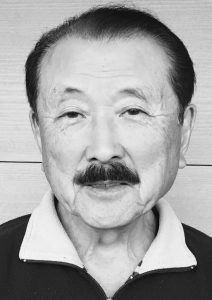 George Nakano
George Nakano
Former California state assemblyman
“As a former member of the state assembly, one of the interests that I had when I got elected was to find out who stood up against Executive Order 9066 in 1942. I had heard that Ralph Dills was the only person who stood up against it, so I had my staff work with the Legislative Council to look up the records as to whether that was true or not. Not only was it true, there was one other person who also stood up against the Executive Order. At that time, they had a resolution in support of Executive Order 9066 for the state legislature back in 1942.
“Ralph Dills voted no, and so did John Shelley, who was in the state Senate at that time. Joe Kobata owned a nursery in Gardena. Ralph Dills did not have enough money to pay for books and registration at UCLA. He got accepted there. So, Joe Kobata loaned him money and provided him a part-time job for the Christmas holiday, Easter vacation and the summertime. Dills never forgot that. That was one of the reasons he voted no. They wanted to expel him from the Assembly.
“One of the interesting things I found out about John Shelley was that in 1945, when Japanese Americans were being released from camp, this guy named George Hatfield, a state senator, introduced a resolution saying we don’t want Japanese Americans back in California. So, the day that the resolution was going to be heard, [Shelley] went to Auburn, Calif., where some of the wounded Japanese American soldiers were being taken care of. He brought them to the state capitol and introduced them in the Senate Chamber when the resolution was going to be heard and introduced them as American soldiers who sacrificed and accomplished a tremendous amount of courage during WWII. They got a standing ovation. At the moment, George Hatfield walked up to John Shelley and said, ‘You win.’ That resolution never resurfaced.”
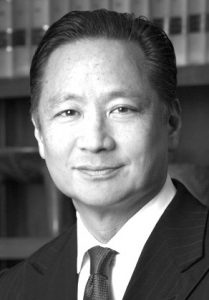 Jeff Adachi
Jeff Adachi
San Francisco public defender
“Looking at the cabinet that Trump is appointing, I think that a lot of people are hoping that the rhetoric of his campaign does not translate into policy — but looking again at the people who he’s appointing in key positions in his cabinet and looking at their track records, it becomes very possible that we could see a repeat of the injustices that Japanese Americans suffered 75 years ago. If these policies come to fruition, it will be a time for Japanese Americans to stand up.
“Even though I wasn’t interned, my parents and grandparents’ experiences are something that I grew up with, even though we didn’t talk about it as much as when we were little kids. With the redress and reparations movement, I think it made the Japanese community band together around this issue like it never has before.
“This will be a test. In a way, when an injustice has been done unto you and you survived it, you have an obligation to protect the next victims, and so there is this natural affinity between Japanese American communities and other communities who are being targeted. We just had a rally and support showing here for Muslims and others who are facing political persecution. It was very well attended. I don’t think I’ve seen a rally like that in Japantown in the last 20 years.”

